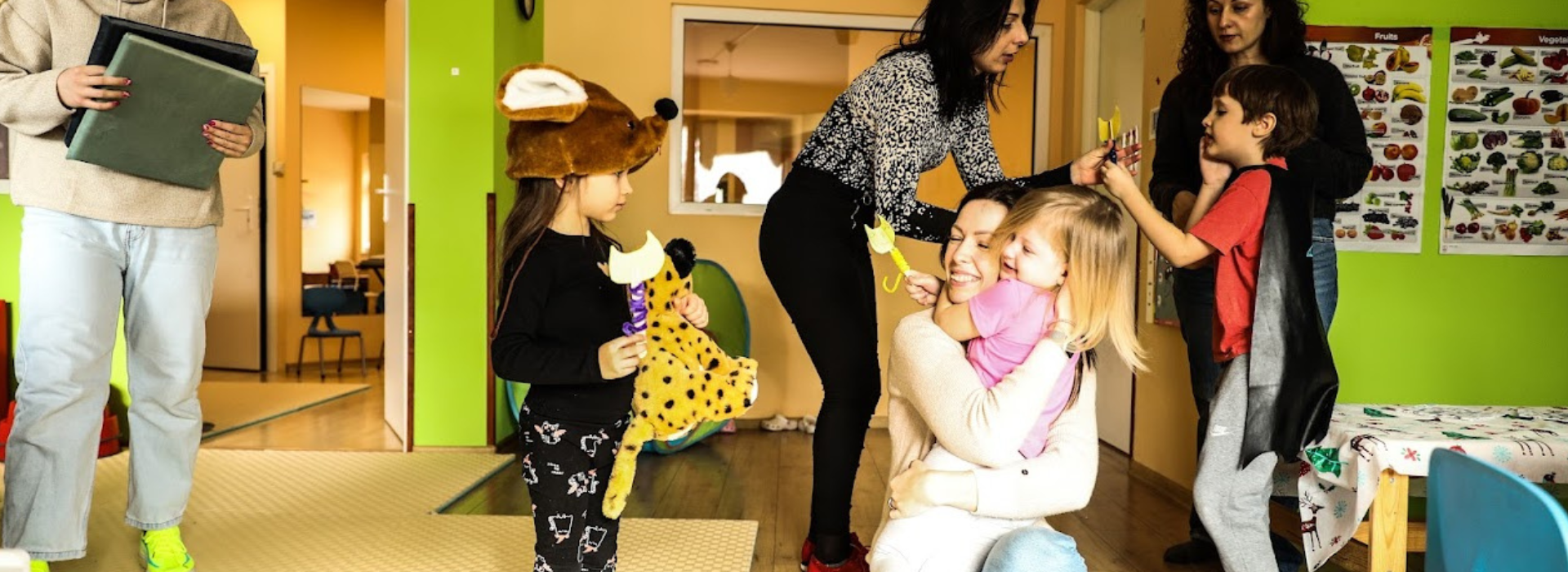Access to capital — and childcare: How this program for Ukrainian women entrepreneurs helped them thrive in Poland
March 26, 2024 | By Eva Lacinova
When Russian missiles began raining down on Kyiv in 2022, Polina Khlibanovska hurriedly threw clothes into a suitcase and bundled her five-year-old son into the car. Barely stopping to eat or sleep, she drove for nearly two days to reach the safety of the Polish border.
Like more than a million Ukrainian women and children who fled to neighboring Poland, Khlibanovska had no idea how long she would be away from home, but she knew she urgently needed to find a way to support herself and her child.
After many years of working with children, she knew how to run a kindergarten, but little about how to finance the startup costs or navigate Polish business permits, let alone advertise for clients in a new language.
Spotting an advertisement for a small business program for Ukrainian women entrepreneurs run by Poland’s Impact Foundation and supported by the Mastercard Center for Inclusive Growth, Khlibanovska decided to apply and got a spot.
Now, thanks to the legal, business and financial support offered by the (Re)building Ukrainian Business program, she runs her Smart Kindergarten Warsaw venture and employs three other women.
Khlibanovska was one of 1,500 women to apply for 80 spots on the yearlong program, which opened a Warsaw co-working space to give entrepreneurs the space and support they needed to start a new company or rekindle businesses they ran in Ukraine.
“We wanted the project to have a snowball effect by giving them the tools and knowledge to survive and live in a different country,” says Emilia Borkowska, project manager for the Impact Foundation. “They were full of energy and motivated to start a new life.”
Yet many of these women needed more than business skills to launch their new lives.
All too often, women entrepreneurs are forced to juggle the lion’s share of childcare with the challenges of starting and running a new business. According to a recent World Bank study, women spend 2.4 hours a day more on unpaid care than men, and much of that is spent looking after children.
For the women fleeing the war, the burden on them was even greater — they were in a new country where they didn’t speak the language and knew no one, had no immediate job prospects, and had children who were dependent on them.
Providing free childcare for kids at the center quickly proved a game changer. With their children safely meeting new friends or learning Polish, the women could focus on channeling legal, business and e-commerce advice into new ventures ranging from law practices to nail salons.
“It’s about making them comfortable and safe in their new environment — giving them not only a place where they can work on their new business ideas but also the peace of mind to know that their kids are well cared for when they do it,” says Payal Dalal, senior vice president of social impact for international markets at the Center for Inclusive Growth.
The entrepreneurs also struggled to find ways to finance their nascent startups. With bank loans out of reach for most of the women, giving them vouchers worth $4,000 was key to getting their businesses off the ground. But beyond setting them on the path to personal success, this support has helped many of the women in turn build up the communities that have embraced them.
For instance, hairdresser Inna Bozhko fled Kharkiv with her daughter, who has cerebral palsy and autism. Through this funding, as well as support writing a business plan, she was able to open Barbershop Inclusive, which has a special area where noise-sensitive children can get a trim.
“It’s hard when you’re a single mother. I wish women weren’t so afraid to take their lives in their own hands,” Bozhko says.
Like Bozhko, three-quarters of the women who took part in the program say their financial situation has improved since they joined the (Re)building Ukrainian Business program, which also offered psychological support to the refugees.
“These companies and individuals are employing people, paying taxes and supporting local communities,” says Mastercard’s Marta Życińska, the Poland country manager. “Looking at these businesswomen, I do not see victims of war. I see strong, resilient, entrepreneurial women who look to the future with their heads held high. This image is the best proof that our program has proven to be of real assistance.”
While a handful of the women entrepreneurs have returned home to Ukraine despite the continuing war, the program has proved a much-needed fresh start for many who are now choosing to stay and raise their children in Poland.
“Even when you have a bad day,” Khlibanovska, says, “the next day the wings open up again and you fly.”
Banner photo: Polina Khlibanovska, who fled Ukraine for Poland, hugs one of her charges at the kindergarten she opened in Warsaw.